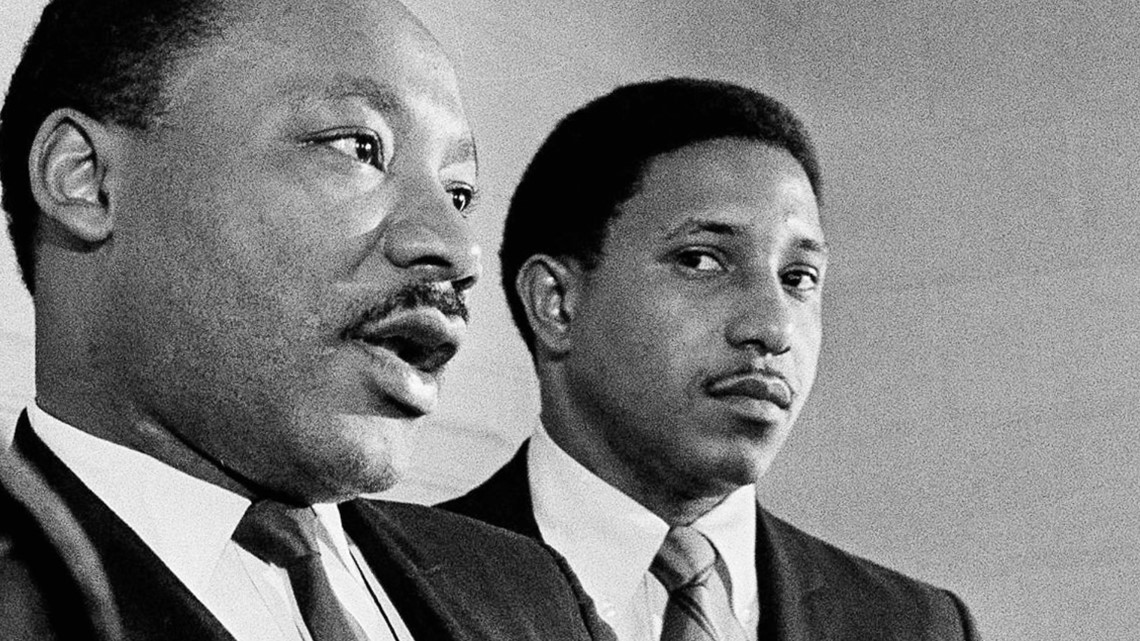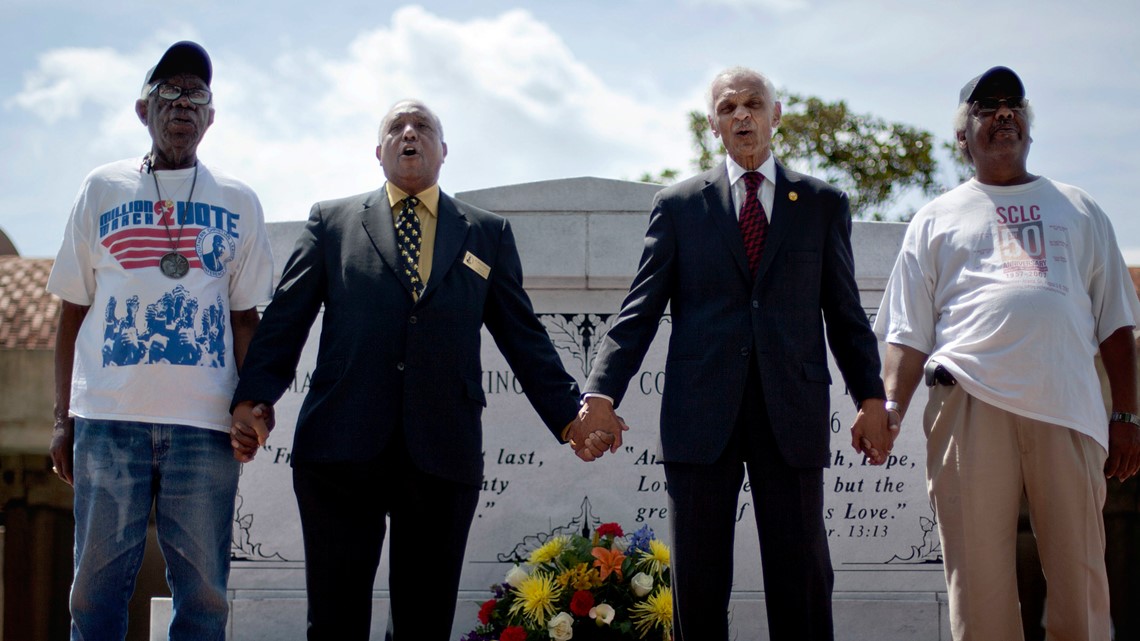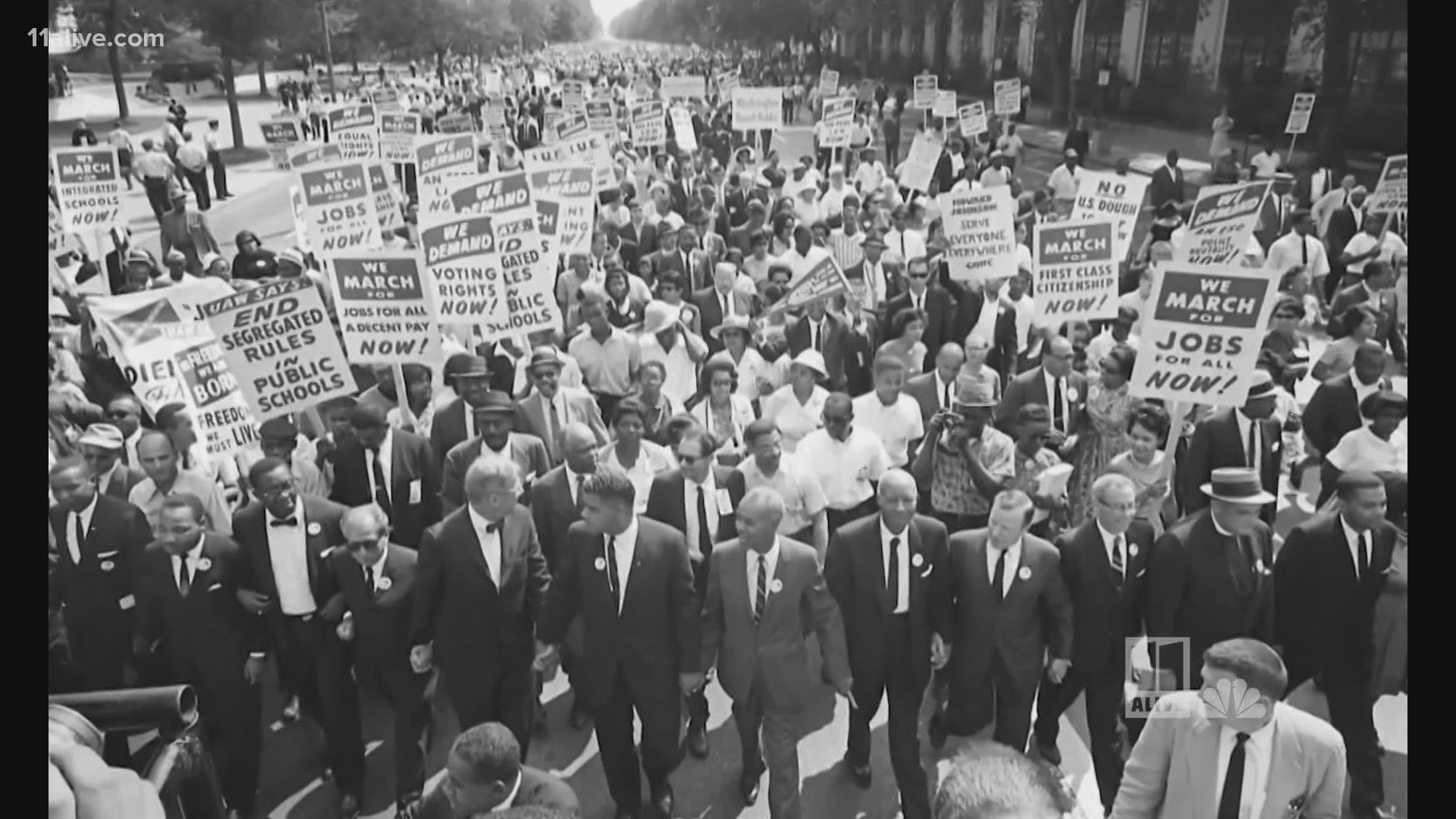ATLANTA — “The model that John Lewis set, John Robert Lewis, is the model that I’m looking to help develop more and more. And I know the training he got because I was trained with him,” said civil rights leader Bernard Lafayette.
Lafayette started asking “What is my role?” around the time he met his lifelong friend.
“John Lewis and I ended up being roommates at the American Baptist Theological Seminary in Nashville. We were both in school,” Lafayette explained.
Before their first demonstration, they learned a valuable lesson.
“You can’t do everything at the same time. Pick a specific issue that you can unite around. So in Nashville, we brought all of the students from different colleges and universities into the training, but to only focus on the lunch counters,” he said. “We learned how to stand together and even suffer together. We were attacked, beaten. But even when that happened, we knew that we had to continue.”
He said pushing past fear is one of the keys to leadership.


“You have to overcome fear in order to be a leader," Lafayette said. "You talk about leaders, you’re talking about leadership. It means that they’re all on the same ship and not going on different boats in different directions.”
As a leader, his mission became to analyze and fight against hatred and racism.
“You have to look into a person’s eyes but you have to see what they’re looking at. You know what you’re looking at. But you have to try to figure out how do they view you? What do they see when they want to hurt you or harm you? And then, the most radical thing you can do, is to imagine being that person. You didn’t choose to be black,” he described.
Movements require recruitment, and there was no one better at inspiring than Dr. Martin Luther King, Jr.
“I ended up working with Martin Luther King. He recruited me," Lafayette said. "And he was telling me to come down to Atlanta. He realized the work that I had done in the Selma movement, and he wanted me to be part of his organization.”
Lafayette co-founded the Southern Christian Leadership Conference (SCLC) and helped lead the 1968 Poor Peoples' Campaign. Recently, he was mentioned in former President Barack Obama's speech.


“John and Bernard Lafayette bought two tickets, climbed aboard a Greyhound, sat up front, and refused to move,” Obama said.
11Alive's Neima Abdulahi asked Lafayette, "Young people all across the world are asking themselves what do I want my role to be in history? How did you ask yourself what is my role and how did you answer that for yourself?”
That was a question he was familiar with.
“That is one of the questions I had to ask myself. I said to myself, when I get grown, I am going to do something about this problem. I wasn’t fighting for my grandchildren. I was fighting for my grandparents. So I wanted it to come soon. We do not know how long we’re going to live. So we have to decide as soon as possible, what contribution we’re going to make.”
His mission now is to pass the torch to the next generation.
“I have committed my life to train leaders. No revolution has ever been won, unless you’re able to win the sympathy, if not, the active involvement of the masses,” he said in closing.

